Product Description
Ortho Molecular Products Orthomega 820
Ortho Molecular Products Orthomega 820 is an encapsulated fish oil sourced from the waters off the Chilean coast. Orthomega provides 820 mg of eicosapentaenoic acid (EPA) and docosahexaenoic acid (DHA) per soft gel as natural triglycerides.
Orthomega 820 is an encapsulated fish oil sourced from the waters off the Chilean coast. Orthomega provides 820 mg of eicosapentaenoic acid (EPA) and docosahexaenoic acid (DHA) per soft gel as natural triglycerides. Vitamin E (as mixed tocopherols) and rosemary extract are used to ensure maximum purity and freshness. Orthomega 820 fish oil is purified, vacuum-distilled and independently tested to ensure heavy metals, pesticides and polychlorinated biphenyls (PCBs) are removed to undetectable levels, like other licensed natural health products that contain fish oils. Extensive research has shown that EPA and DHA from fish oil helps support cardiovascular health, cognitive health and brain function. With over 10,000 published studies in the last three decades, EPA and DHA from fish oil are among the most researched natural ingredients available and have a long history of safety and efficacy.
Overview
Omega-3 fatty acids are essential cornerstones of human nutrition. They are deemed “essential” because we need them for proper health, but cannot produce them on our own. We must therefore consume these fats through diet or supplementation. Omega-3 fatty acids are required for a number of body functions, from normal growth to brain development. These long-chain fatty acids are integral components of tissues throughout the body, including the heart, skin, eyes and brain. In nature, omega 3s occur as alpha linolenic acid (ALA), found mostly in plants, and as long-chain EPA and DHA, which primarily originate from cold-water fish. The body is able to slowly convert the shorter chain ALA to the more active long-chain, EPA and DHA. The slowness of the conversion is due to delta-5 and delta-6 desaturase enzyme activitywhichlimitstheproductionofEPAandDHA. Inaddition,
major changes in modern diet over the last century have led to a decrease in the general consumption of omega-3 fatty acids. Since omega-3 fatty acids are known to benefit cardiovascular health, and support brain function and cognition, achieving the proper balance of omega-3s has become an important health strategy, requiring supplementation for most people.1 The American Heart Association recommends that those concerned about blood lipids take up to 4 g of omega-3 fatty acids per day.2
Fish Oil Delivery –
Triglycerides vs. Ethyl Esters†
While the amount of EPA and DHA provided in a fish oil product is important for efficacy, the type of fish oil delivered is another significant factor in defining fish oil effectiveness. While ethyl esters allow for higher concentrations of EPA and DHA to be achieved, their unusual structure is resistant to the digestive enzymes (lipases) that enable fat breakdown. In a study comparing EPA and DHA digestion in both the natural triglyceride and ethyl ester form, five common digestive lipase enzymes were shown to more readily digest fish oil in the natural triglyceride as compared to the ethyl ester substrate when there is a low enzyme to substrate ratio and therefore a low rate of hydrolysis.3 A recent study, conducted by fish oil research pioneer Dr. Jorn Dyerberg, demonstrated that omega- 3s in the triglyceride form are more efficiently digested and therefore 70% more absorbable than omega-3s in the ethyl ester form.4
Omega-3 Depletion†
An accumulating body of research shows that the typical Westernized diet does not provide a sufficient amount of omega-3s for optimal health. Additionally, insufficient conversion of ALA to the active EPA and DHA may reduce the amount available for use in organs and tissues. Symptoms of omega-3 deficiency are common and often overlooked.5
Cardiovascular and Blood Sugar Health†
Omega-3 fatty acids have long been known to benefit cardiovascular health. The well-known GISSI- Prevenzione trial found that just 1 g a day of n-3 PUFAs (polyunsaturated fatty acids), the main component in fish oil, had a significant impact on cardiovascular health after three to four months of consumption.6
Additional Benefits of Omega-3 Fatty Acids†
In addition to their well-known cardiovascular benefits, EPA and DHA play a central role in eyes, nerves and brain development in children up to 12 years of age. In a recent British study, omega-3 blood levels were shown to be directly related to supporting cognition, and brain function among healthy children with below-average reading ability.7
Recommended Dose
Adults and adolescents 9 years+: Take 1 capsule 1 time per day.
Medicinal Ingredients (per capsule)
Fish oil (Engraulidae, Clupeidae, Scombridae – Whole)………………..0.95 g (430 mg EPA,
Triglyceride
Triglyceride form has a natural glycerol backbone offering up to 70% more absorption than ethyl ester.
Non-Medicinal Ingredients
390 mg DHA)
Ethyl Ester
Natural Lemon flavour, Natural Lime flavour, Mixed tocopherol concentrate, Rosemary Leaf Extract, Ascorbyl palmitate, Hypromellose, Gellan gum.

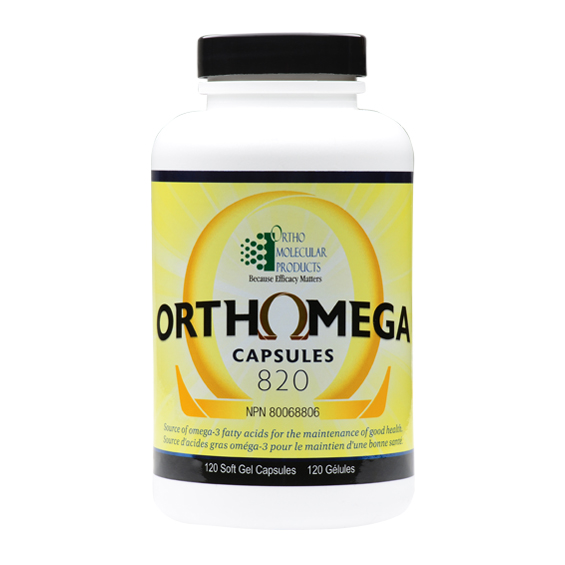
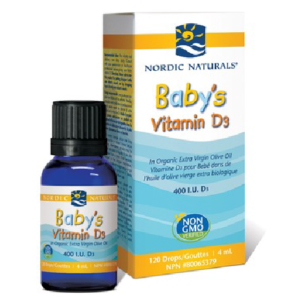
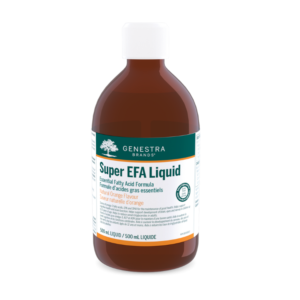
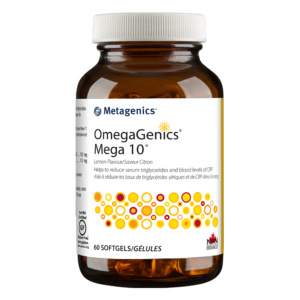
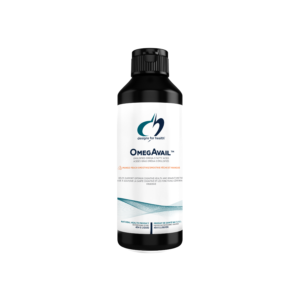
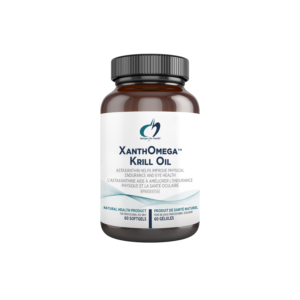
Reviews
There are no reviews yet.